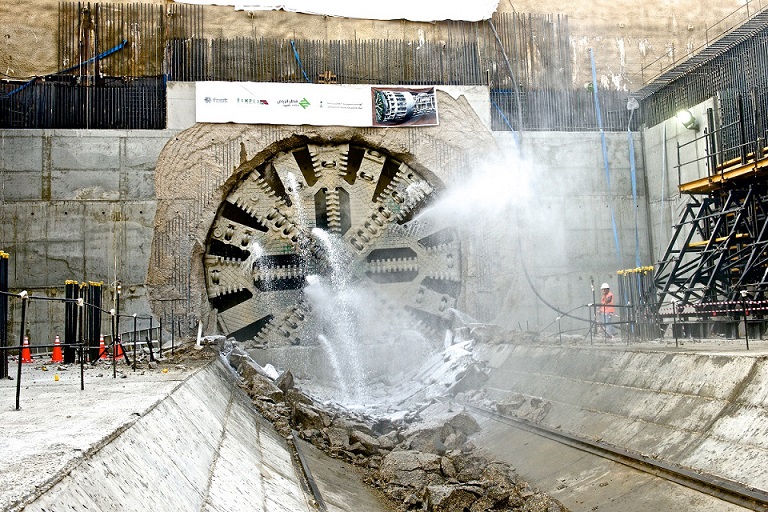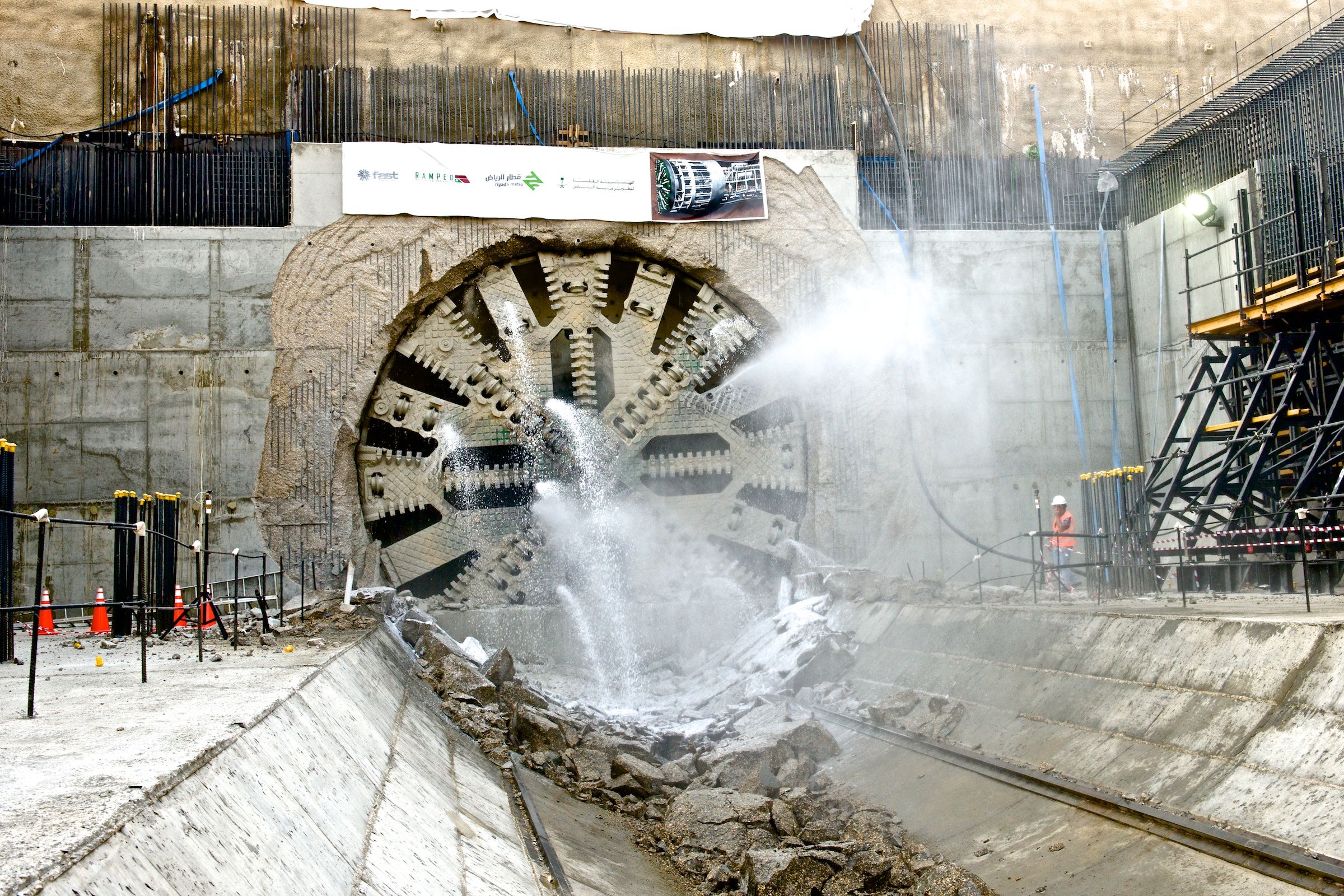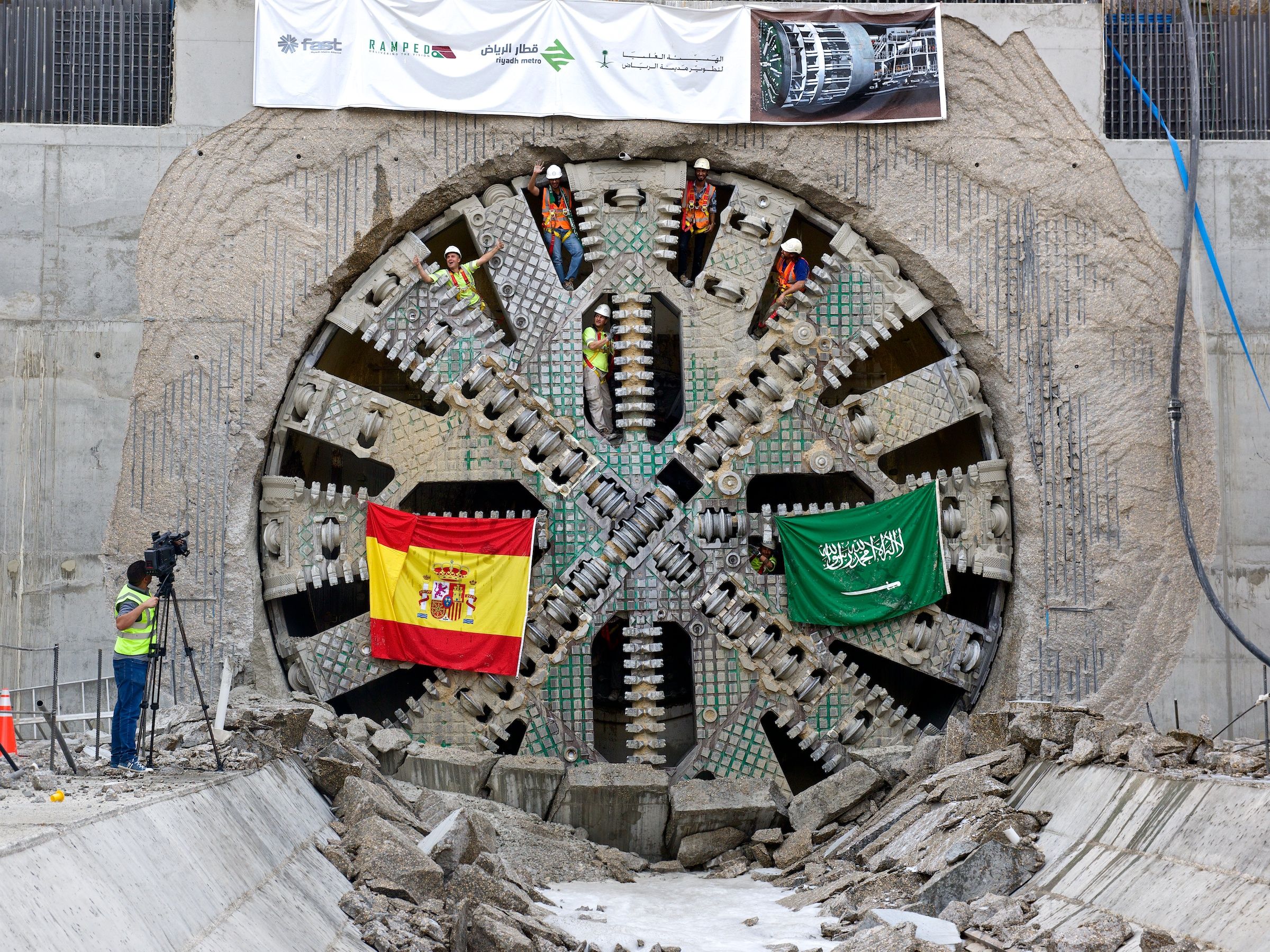FCC finishes drilling the first tunnel section of line 5 of the Riyadh Metro
- The FCC-operated tunnel boring machine is the first to reach a station in the Riyadh Metro project
- The FAST consortium, which is led by the Citizen Services Group, is the team which has excavated most kilometres so far (3,8 km of the total 12,9 km of the line)

The FCC-led consortium, FAST, has finished drilling the first tunnel section of line 5 (green line) of the Riyadh Metro. The metro tunnel boring machine, "San'ah", reached the Salah Al-Din station, thereby completing the excavation of a 1.2 km section of a total of 5 km comprising this section. These works represent a new milestone for the FCC team after becoming the first team to reach a station having excavated the most kilometres of the tunnel so far.
With this progress, the consortium, which is responsiblefor the construction of lines 4, 5 and 6 of the metro, has become the work team that has advanced most throughout the implementation of the project.
The drilling works, which began on 30 June 2015 at the new central office for the Ministry of Education, will continue on the north section of line 5 (green line) until they reach Riyadh Airbase Roundabout. There they will be met with our tunnel boring machine "Dhafrah", the first machine to start drilling works on the Riyadh Metro project, which will be used to finish the 12.9 km tunnel of line 5.
FAST employees and members of the Arriyadh Development Authorities met with residents of the district of Salah Al-Din, who were invited to take part in this historic experience. Local people from this tiny district could witness how the machine's cutterhead chipped through the walls of the station and they gave the FAST engineers who were operating the machine a round of applause when they came out of the tunnel.
During his speech, project director of the FAST consortium, Jaime Freyre, mentioned "his satisfaction that both tunnel boring machines have been the first to reach the milestone which entails drilling this section of the tunnel and meeting the set deadlines. Dhafrah was the first machine we launched and San'ah was the first to get going on the Riyadh Metro project".
Freyre went on to say that "FAST has been committed to transferring technical knowledge to Saudi citizens through several programs which are currently being implemented in collaboration with the High Commission for the Development of Arriyadh, and to protecting the environment: reducing the production of dust and noise and ensuring that strict safety measures are taken to limit the impact of the drilling and construction processes".
To construct the three lines awarded under the contract, the FAST consortium will use two 9.77 metre-wide tunnel boring machines that will excavate tunnels with a circular cross section. Overall, seven tunnel boring machines will be used to complete the Riyadh Metro project, which stands as the largest underground commuter train network under construction worldwide, covering 176 kilometres and 85 stations.
The works are expected to be completely finished by the end of 2018. Therefore, FAST (also made up of Samsung, Alstom, Strukton, Freyssinet Saudi Arabia, Typsa, Atkins and Setec) will employ close to 15,000 workers of more than 33 nationalities. FCC is undertaking the challenge of designing and constructing a first-class metro for the capital of Saudi Arabia, which currently has a population of 5.7 million people. 2% of the population uses public transport, which equates to approximately 7.4 million journeys made daily. The population is expected to rise to 8.3 million people by 2030, therefore the Riyadh Metro will, as well as boosting the local economy, improve the Saudi quality of life.










